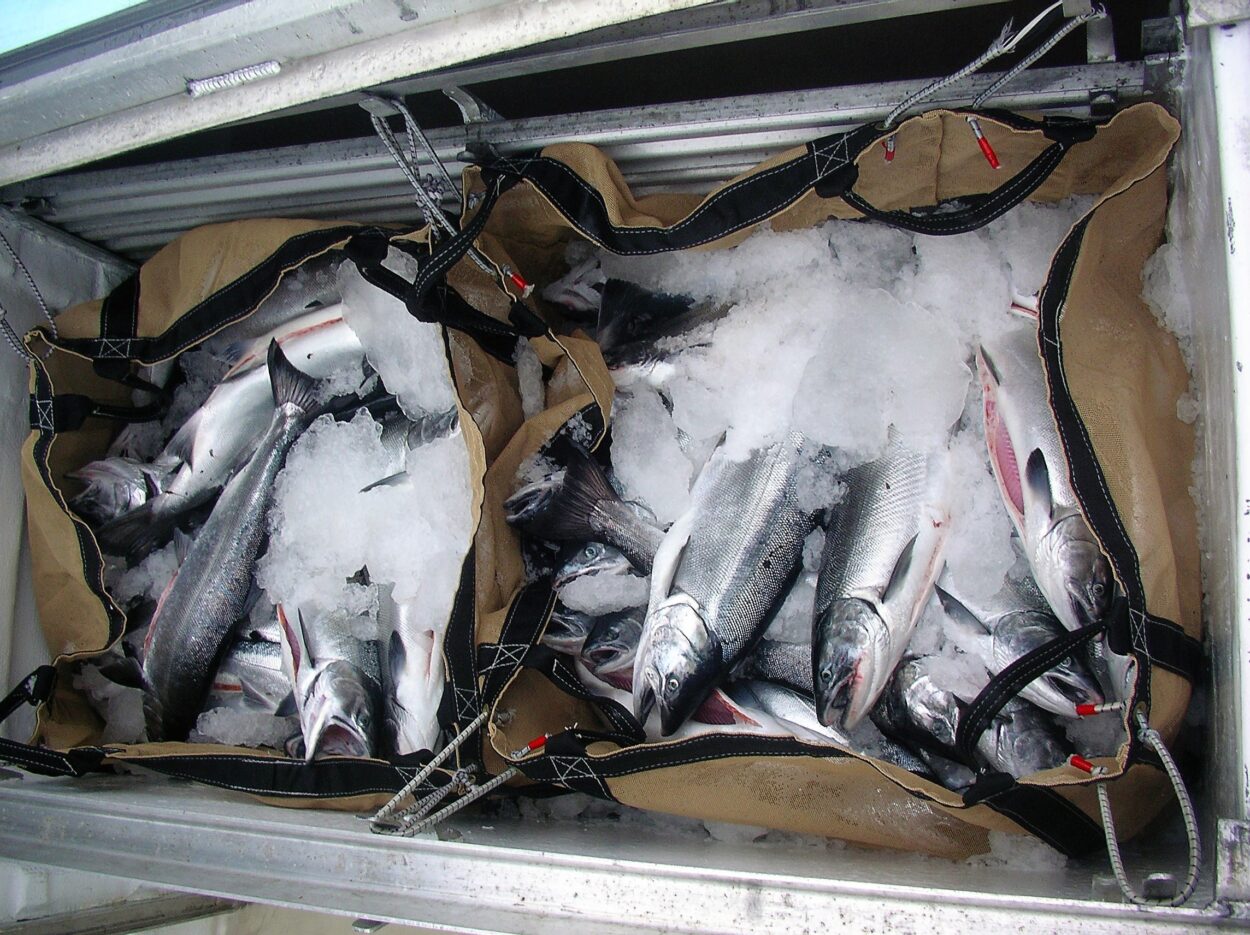
(Photo courtesy of Matt Lichtenstein)
A Canadian conservation group, Ocean Wise, reversed its recommendation of Southeast Alaska salmon on July 18. The organization withdrew its support on the grounds that multiple gear groups in the region are catching too many fish destined for other places up and down the Pacific Coast. That move was quickly followed up by a rebuttal from another global nonprofit known for labeling sustainable fisheries.
Salmon products from Southeast Alaska’s purse seine, drift gill net, and troll fisheries will no longer bear the Ocean Wise label: a simple black-and-white fish with a “W”-shaped tailfin. That’s a signal to its suppliers that it no longer believes the region’s multi-million dollar salmon industry is sustainable.
Ocean Wise aims to give seafood buyers recommendations to help them make “ocean-friendly buying decisions” to keep seafood resources around for future generations, and to reduce harm to other species. The conservation group works with big food retailers like Safeway and IGA, as well as a multitude of smaller suppliers and distributors across the world.
In a July 15 press release, Ocean Wise said it withdrew its endorsement of Southeast salmon fishermen because they are: “…intercepting (…) salmon stocks inseparable (…) from [British Columbia], Washington, and Oregon stocks. Some of these stocks are destined for rivers in B.C. and contribute to the future survival of Canadian salmon runs.”
Ocean Wise published a list of objections, including a claim that salmon fishing in Southeast has had an adverse effect on several vulnerable species in the Pacific Northwest — particularly, king and sockeye salmon, as well as an endangered population of Puget Sound killer whales, called Southern Residents. It cited a 2022 Washington District court ruling that NOAA violated conservation and environmental laws by allowing Southeast trollers to intercept too many king salmon that may have fed the Southern Residents. That ruling is currently being appealed in federal court.
But another prominent eco-label claims that Ocean Wise arrived at that conclusion prematurely. On July 18, the Marine Stewardship Council — or MSC — criticized Ocean Wise’s attempts to shortcut their third-party certification process.
MSC placed Southeast salmon under review this May, launched by an objection from three Canadian conservation organizations. Two of those three organizations — the Raincoast Conservation Foundation and Skeena Wild — also advised Ocean Wise to pull its label from Southeast salmon.
But MSC says it will not decide whether to pull its label from the Southeast salmon until the independent review is complete.
In a press release, MSC said they place their confidence in the rigor and transparency of that assessment. And that, QUOTE: “Alaska salmon has a near 25-year proven track record of meeting the MSC fisheries standard.” END QUOTE.
The MSC certificate for the fishery remains valid, and Southeast salmon can still be sold with the MSC blue label. The current certificate expires on November 11. At that point, it’s up to the organization to decide whether it will continue putting its label on the product.
Ocean Wise said in their press release that it will not return its stamp of approval until the sustainability of Southeast Alaska salmon is no longer in question.











